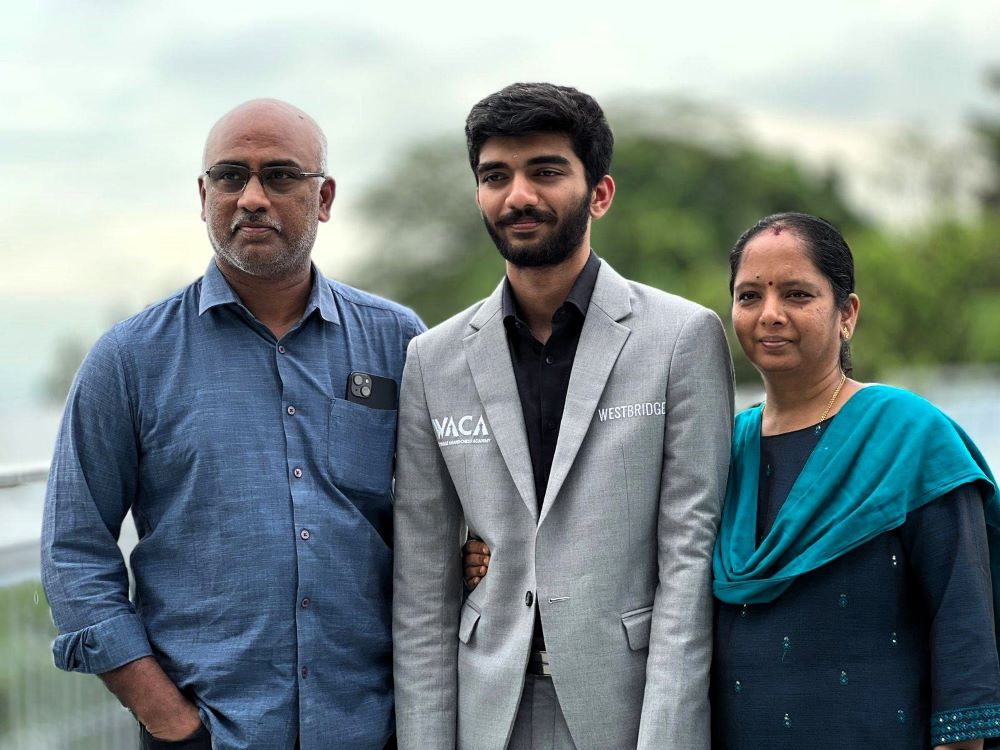D Gukesh: World’s Youngest Chess Champion – Lessons for Aspiring Parents and Prodigies

D Gukesh, a name that has now become synonymous with brilliance in the world of chess, recently achieved the remarkable feat of becoming the world’s youngest chess World Champion. His journey is a tale of relentless effort, unwavering parental support, and a willingness to challenge conventional norms. For parents aspiring to nurture extraordinary talent in their children, Gukesh’s story offers valuable insights into dedication, the role of family, and the sacrifices required to defy the regular schooling system.
Gukesh's Journey to Chess Glory
Born in 2006 in Chennai, Tamil Nadu, Gukesh was introduced to chess at the age of seven. His parents, Dr. Rajinikanth, a medical doctor, and Dr. Padma Kumari, a microbiologist, recognized his potential early on and provided unwavering support to his ambitions. While most children his age were grappling with elementary studies, Gukesh was making his mark in chess tournaments across the globe.
By the age of 12, he had already become the second-youngest Grandmaster in chess history, showcasing his prodigious talent. His ascent was no accident but the result of a meticulously planned and rigorously executed effort. Gukesh’s routine involved intensive training with some of the best chess coaches and hours of practice every single day. This level of commitment came with sacrifices, not just from him but also from his family.
Gukesh’s achievements have not only brought him global recognition but also significant financial rewards. Over the years, he has won more than $500,000 in prize money from various international tournaments, sponsorships, and endorsements. This highlights the potential financial benefits of nurturing a child’s talent at an early age.

The Role of Parental Support
Parents play a pivotal role in shaping prodigies. In Gukesh’s case, his parents went above and beyond to ensure he had the best resources and opportunities. Here are some lessons parents can learn from Gukesh’s journey:
- Recognize Talent Early: Gukesh’s parents identified his aptitude for chess early on and fostered his interest with the right guidance.
- Provide Emotional and Financial Support: Chess, like any competitive field, requires significant investment in terms of time and money. From coaching fees to travel expenses for international tournaments, Gukesh’s parents ensured he had everything he needed.
- Be Willing to Adapt: Gukesh’s parents chose to homeschool him, allowing him the flexibility to focus entirely on chess without the constraints of a traditional school schedule.
- Encourage Consistency: The journey to mastery is long and arduous. Gukesh’s parents ensured he maintained a disciplined routine to continuously hone his skills.
Defying the Traditional School System
One of the most striking aspects of Gukesh’s journey is his departure from the conventional education system. While most children attend regular schools and follow a structured curriculum, Gukesh’s parents opted for homeschooling. This decision allowed him to dedicate substantial time to chess without the pressure of juggling academics.
The traditional school system often prioritizes standardized testing and a fixed syllabus, which can limit the time and energy children can devote to developing specialized talents. For parents aspiring to nurture prodigies, it’s crucial to:
- Embrace Alternative Education: Explore homeschooling or online education to provide flexibility.
- Set Realistic Academic Goals: Balance academic requirements with your child’s passion.
- Foster a Love for Learning: Create an environment where learning isn’t just about grades but about growth and curiosity.

Effort and Sacrifice: The Reality Behind Success
The journey of creating a prodigy isn’t without its challenges. Parents must be prepared to make sacrifices:
- Time Commitment: Supporting a child’s talent requires significant involvement, from coordinating schedules to attending tournaments.
- Financial Investment: Specialized coaching, equipment, and travel for competitions can be expensive. For Gukesh’s family, this meant prioritizing his career over other luxuries.
- Emotional Resilience: The path to success is fraught with setbacks. Parents need to provide a stable and supportive emotional environment.
What Parents Can Take Away
- Nurture Passion: Encourage your child’s interests and give them opportunities to explore their potential.
- Invest in Expertise: Seek out the best mentors and resources for your child.
- Prioritize Well-Being: Ensure your child maintains a healthy balance between their passion and personal life.
- Challenge the Norms: Be willing to step outside conventional systems if they don’t serve your child’s unique needs.
Inspiring the Next Generation
Gukesh’s journey is a testament to what’s possible when talent meets opportunity and hard work. For parents, his story serves as a reminder that nurturing a child’s potential requires vision, effort, and an unwavering belief in their abilities. By creating an environment that fosters growth and challenging societal norms, parents can help their children achieve extraordinary feats.
Final Thoughts
D Gukesh’s rise to becoming the world’s youngest chess World Champion is an inspiring tale of talent, effort, and extraordinary parental support. His story underscores that success isn’t just about innate ability; it’s about the ecosystem of support, encouragement, and resources that enable a child to thrive. For parents, the lesson is clear: with vision, dedication, and a willingness to challenge societal norms, you can help your child achieve greatness. The path isn’t easy, but as Gukesh’s journey shows, it’s undoubtedly worth it.